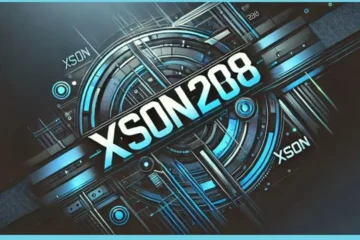When I first started covering hybrid technology, I remember a mechanic joking that hybrid batteries have the lifespan of a house cat—long enough to make you think they’re immortal, but not quite. After years of researching the industry, I’ve realized something fascinating: hybrid batteries don’t really die; they just get misunderstood.
In Charlotte, North Carolina, where more and more drivers are choosing hybrids, there’s a growing demand for smarter, cost-effective battery solutions. One of the biggest misconceptions I hear from hybrid owners—especially Toyota Prius drivers—is that when a battery fails, it’s game over. That’s where specialists like Hybrid Battery Service come in, offering innovative solutions like 2011 Prius battery replacement that don’t require you to sell your car or take out a second mortgage. But let’s break this down and talk about why hybrid batteries aren’t really “dead” when they stop working and how technology is making them last longer than ever.
The Science Behind “Dead” Hybrid Batteries
The term “dead battery” is a little misleading. Unlike your phone battery that stops holding a charge after a couple of years, hybrid batteries don’t just give up and refuse to work one day. They’re made up of multiple cells—sometimes as many as 28 in a Toyota Prius—so when a hybrid battery “dies,” it often means a handful of cells have degraded while others are still in working condition.
Modern hybrid batteries, particularly Nickel-Metal hydrogen (NiMH) ones like those used in Toyota’s older hybrid models, degrade due to charge imbalance. Over time, some cells hold charge differently, leading to performance issues. This is why a full 2011 Prius battery replacement isn’t always necessary—sometimes, a repair expert can replace or rebalance just the faulty cells instead of swapping out the entire pack.
This kind of repair wasn’t always an option. A decade ago, dealerships had a simple answer: “Your battery is dead. Buy a new one.” But now, with advanced diagnostics and repair techniques, businesses like Hybrid Battery Service in Charlotte are proving that “battery death” is just a myth created by those who don’t know how to fix them.
Why The Dealer Wants You to Buy a New Battery (And Why You Might Not Have To)
I recently spoke with a hybrid owner in North Carolina who was quoted over $4,500 for a new 2011 Prius battery replacement at a dealership. The worst part? The car itself was only worth about $6,000. That’s like being told to replace the entire engine in a ten-year-old sedan instead of fixing the spark plugs.
The reason dealerships push full battery replacements is simple: profit margins. New battery packs aren’t cheap; manufacturers would rather sell you a fresh one than explain the more affordable repair options. Toyota, for example, knows that Prius batteries can last over 200,000 miles with proper maintenance. Still, they’d rather have customers trading in their older hybrids for new ones instead of repairing what they already have.
Luckily, companies like Hybrid Battery Service are changing that narrative in Charlotte by offering reconditioned and repaired hybrid battery solutions. They diagnose precisely which cells are failing, replace only what’s needed, and extend the life of your Prius without making you break the bank.
The Tech That’s Changing Hybrid Battery Repairs
One of the biggest game-changers in 2011 Prius battery replacement isn’t just better mechanics—it’s better software. Machine learning and AI-driven diagnostics are now being used to analyze battery performance at a level humans never could before.
For example, predictive maintenance algorithms are helping hybrid technicians spot weak cells before they fail. Some businesses in Japan have even developed AI models that monitor driver behavior and suggest battery optimizations based on real-world driving conditions. That means if you’re the type of driver who constantly accelerates hard or lets your battery drain too low, the system can adjust energy distribution in real time to prevent premature wear.
Toyota has already hinted at integrating real-time battery monitoring into future Prius models, similar to how Tesla does for its lithium-ion packs. If that technology trickles down into affordable repair tools, it could mean even longer lifespans for existing hybrid batteries—which is great news for anyone who doesn’t want to drop thousands on a full replacement.
Why Toyota Prius Batteries Are Stubborn Survivors
Toyota did something interesting when designing the Prius: they made sure the hybrid battery wasn’t just a standalone system—it was built to integrate seamlessly with the engine and regenerative braking system. That’s why, even when a Prius battery starts failing, the car can often keep running (poorly, but still running) for months before completely shutting down.
But here’s the problem: as battery cells degrade, fuel efficiency starts tanking. A failing battery pack can drop a Prius from 50 MPG to 35 MPG—the equivalent of turning your hybrid into a regular gas-powered sedan. In extreme cases, some Prius owners have reported losing up to 15% of their total power output, making the car sluggish and unresponsive.
A 2011 Prius battery replacement is essential before your battery reaches total failure. The longer you wait, the more strain you put on the gas engine, leading to unnecessary wear and higher fuel costs. And considering gas prices aren’t getting cheaper, a failing hybrid battery can cost you more at the pump than you might think.
What’s Next for Hybrid Battery Repair?
While we’ve seen significant improvements in battery diagnostics and repair methods, hybrid battery technology is still evolving. Companies like Toyota and Honda are investing billions into next-generation solid-state batteries, which promise longer lifespans and faster charging times. However, these technologies are still years away from being mass-produced at an affordable price.
Until then, the best approach is smart battery maintenance—whether it’s regular reconditioning, cell replacement, or investing in a high-quality 2011 Prius battery replacement when necessary. If you’re in Charlotte, Hybrid Battery Service is one of the few companies that truly understand the science behind these repairs. It offers affordable solutions that ensure your hybrid keeps running without costing you a fortune.
The Risks of DIY Hybrid Battery Repairs
You’re not alone if you’ve ever gone down a YouTube rabbit hole looking for 2011 Prius battery replacement tips. Thousands of hybrid owners search for ways to fix their failing battery packs every month, hoping to save a few bucks. And let’s be honest—some of those videos make it look ridiculously easy.
But here’s the catch: hybrid battery repairs aren’t like changing your car’s oil or swapping out a spark plug. You’re dealing with high-voltage electrical systems that can deliver a deadly shock if you don’t know what you’re doing. Toyota Prius battery packs, for example, run at around 200-300 volts—enough to make your bad day a lot worse if you touch the wrong connection.
That’s not even the worst part. I’ve talked to mechanics in Charlotte who have seen DIY repairs go wrong—one guy replaced a few failing cells but forgot to balance them with the rest of the pack properly. The result? A massive voltage mismatch that fried the entire battery within weeks. Instead of saving money, he spent more on a full replacement than if he had just gone to a professional like Hybrid Battery Service in the first place.
And let’s not forget the quality of replacement cells. Most people cannot access high-quality, professionally reconditioned hybrid battery cells. If you buy them online, you have no idea what you’re getting—some of them are from scrapped Priuses with 200,000 miles on them, barely holding a charge. The professionals at Hybrid Battery Service use advanced testing equipment to ensure every cell meets strict performance standards before they’re installed, meaning your repaired battery actually lasts instead of failing again in a few months.
The Global Race to Recycle Hybrid Batteries (And Why It’s Not Moving Fast Enough)
One of the biggest misconceptions about hybrid cars is that their batteries are an environmental disaster. Battery production indeed requires mining for rare earth metals like lithium, cobalt, and nickel, which has significant ecological consequences. But what most people don’t realize is that hybrid batteries are among the most recyclable car components ever made.
Toyota, for instance, claims that over 91% of its hybrid batteries are either reused or recycled. In Japan, the company has set up specialized battery collection points where customers can return old packs, and some of these batteries are even being repurposed as backup power sources for homes and businesses. In California, new initiatives require automakers to track and recover old hybrid batteries, preventing them from ending up in landfills.
But here’s the problem: the recycling infrastructure isn’t keeping up with demand. As hybrid adoption grows, more and more old battery packs are reaching the end of their lifespan, and the systems in place to recycle them are still struggling to scale. In North Carolina, for example, very few facilities are capable of adequately handling hybrid battery recycling, so drivers often have to ship their old batteries out of state for disposal.
This is where companies like Hybrid Battery Service come into play. Instead of scrapping every failing hybrid battery, they recondition and repurpose as many cells as possible, reducing waste and keeping costs down for customers who need 2011 Prius battery replacement options. It’s a win-win: drivers save money, and fewer batteries end up as electronic waste.
Will Solid-State Batteries Change Everything?
If you’ve been following EV and hybrid news, you’ve probably heard about solid-state batteries—the supposed game-changer that will make traditional hybrid batteries obsolete. These new battery designs promise faster charging, longer lifespans, and improved safety over today’s lithium-ion and nickel-metal hydride batteries.
Toyota has been particularly aggressive in developing solid-state technology. It has invested billions in research and aims to bring these batteries to market by 2027. The company aims to produce a solid-state battery that can power a car for 500 miles on a single charge and last for decades.
Sounds impressive, right? Well, don’t get too excited just yet. There are some significant downsides to solid-state batteries that most people don’t talk about.
First, they’re costly to produce. Right now, even the most optimistic projections suggest that solid-state batteries will be 2-3 times the cost of traditional hybrid batteries when they first hit the market. If a 2011 Prius battery replacement costs around $1,000 today, a solid-state version could easily be $3,000 or more—not precisely the budget-friendly fix most hybrid owners seek.
Second, mass production is still a considerable challenge. Companies like Toyota, Samsung, and QuantumScape are racing to scale up solid-state battery manufacturing, but the technology is still in its early stages. Even if solid-state batteries do become widely available, it will be years before they become affordable enough for mainstream hybrid repairs.
In other words? Don’t expect solid-state to save the day anytime soon. If you’re driving a Toyota Prius today, you’re much better off keeping your current battery healthy with professional repairs from companies like Hybrid Battery Service.
The Future of Hybrid Battery Repair in Charlotte
Charlotte is quickly becoming a hub for hybrid and EV adoption, and with that comes a growing need for affordable and high-quality battery repair services. The idea that hybrid batteries “just die” is outdated—technology is making it possible to extend their life in ways that weren’t possible a decade ago.
From AI-powered diagnostics to better battery balancing techniques, the industry is evolving to help hybrid owners keep their cars on the road longer without breaking the bank. Companies like Hybrid Battery Service are leading the way in North Carolina, offering drivers innovative, cost-effective solutions that dealerships don’t want you to know about.
If you’re dealing with a failing hybrid battery, don’t panic. You don’t need to trade in your car, and you don’t need to drop thousands on a brand-new pack. Instead, look for trusted professionals who understand how hybrid batteries work and can provide a reliable 2011 Prius battery replacement without the dealership markup.
To learn more about how professional hybrid battery repair can save you money and keep your Prius running like new, check out the 2011 Prius battery replacement by Hybrid Battery Service. It’s time to rethink what “battery failure” means—and embrace a future where hybrids run smarter, longer, and more affordable than ever.




